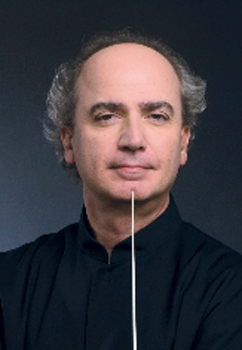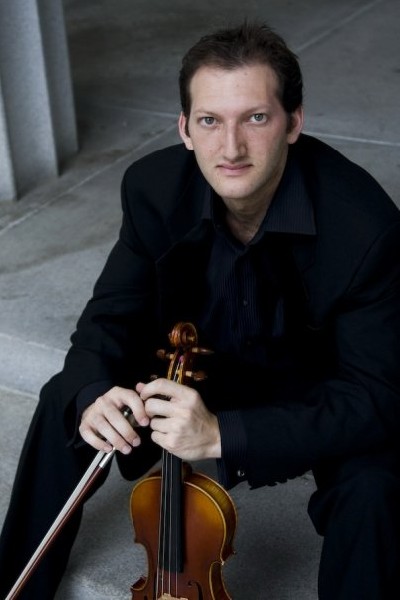Miami Symphony serves up delightful Strauss-plus concert at the Arsht Center

Eduardo Marturet
The Miami Symphony Orchestra’s “Evening in Vienna” concert Sunday night at the Arsht Center included visits to the Czech countryside and German heartland as well as the Austrian capital. Under Eduardo Marturet’s firm baton, the ensemble’s playing in the spacious Knight Concert Hall resounded with a luster and warmth lacking in the orchestra’s regular more cramped venues (Gusman Concert Hall and, now formerly, the Lincoln Theater).
Smetana’s tone poem The Moldau from the symphonic cycle Ma Vlast (My Country) was a fine showcase for the orchestra’s excellent strings. The violin section produced silken sonic waves in the soaring principal theme, supported by the firm rhythmic underpinning of the lower strings reflecting the flow of the river. Sonorous horn calls highlighted a strong brass contingent with only some uneven wind playing briefly marring a felicitous orchestral performance.
It’s usually Czech conductors that excel in this piece, bringing natural idiomatic flair to Smetana’s ingenious blend of folk elements and panoramic color. Yet Marturet’s middle of the road approach struck all the right notes from the rustic dance rhythms to the serene evocation of moonlight and the majestic finale.

Daniel Andai
Concertmaster Daniel Andai was the soloist in Bruch’s Violin Concerto No. 1. A graduate of the Manhattan School of Music and doctoral candidate at the University of Miami’s Frost School, Andai is also concertmaster of the New York based Philharmonic Orchestra of the Americas. His intimately scaled performance was a welcome contrast to the overheated pyrotechnical displays that many high profile soloists bring to this score.
Andai’s tonal richness and firm sense of musical pulse traced the long arc of the Adagio without excessive vibrato. He attacked the final movement with fierce energy, Andai’s secure technique easily surmounting Bruch’s flashy virtuoso demands. Marturet’s subtle accompaniment nicely dovetailed Andai’s shaping of melodic lines. As an encore, the violinist offered a solo version of the muted central section of Sarasate’s Zigeunerweisen, played with soulful fervor and gypsy inflected slides.
The music of Johann Strauss, Jr. was the principal attraction of the concert’s post-intermission half. Marturet led off with a sprightly Overture to Die Fledermaus, yet the conductor was most impressive in fast-paced versions of the Tritsch-Tratsch and Thunder and Lightning polkas, replete with percussive high-jinks. In an expansive Emperor Waltz, the conductor captured the true Viennese manner with wonderful hesitations of phrase and rhythm.
In the tradition of Viennese New Year’s concerts, there were three encores. Brahms’ Hungarian Dance No. 5 was imbued with apt gypsy fire, and Strauss’ On the Beautiful Blue Danube flowed with appropriately whirling currents, featuring a burnished cello solo by Ashley Garritson. The inevitable Radetzky March by Johann Strauss Sr., with the audience clapping in rhythm, was the rousing conclusion to a delightful Miami tradition.
Posted in Performances
Leave a Comment
Mon Jan 24, 2011
at 4:16 pm
No Comments